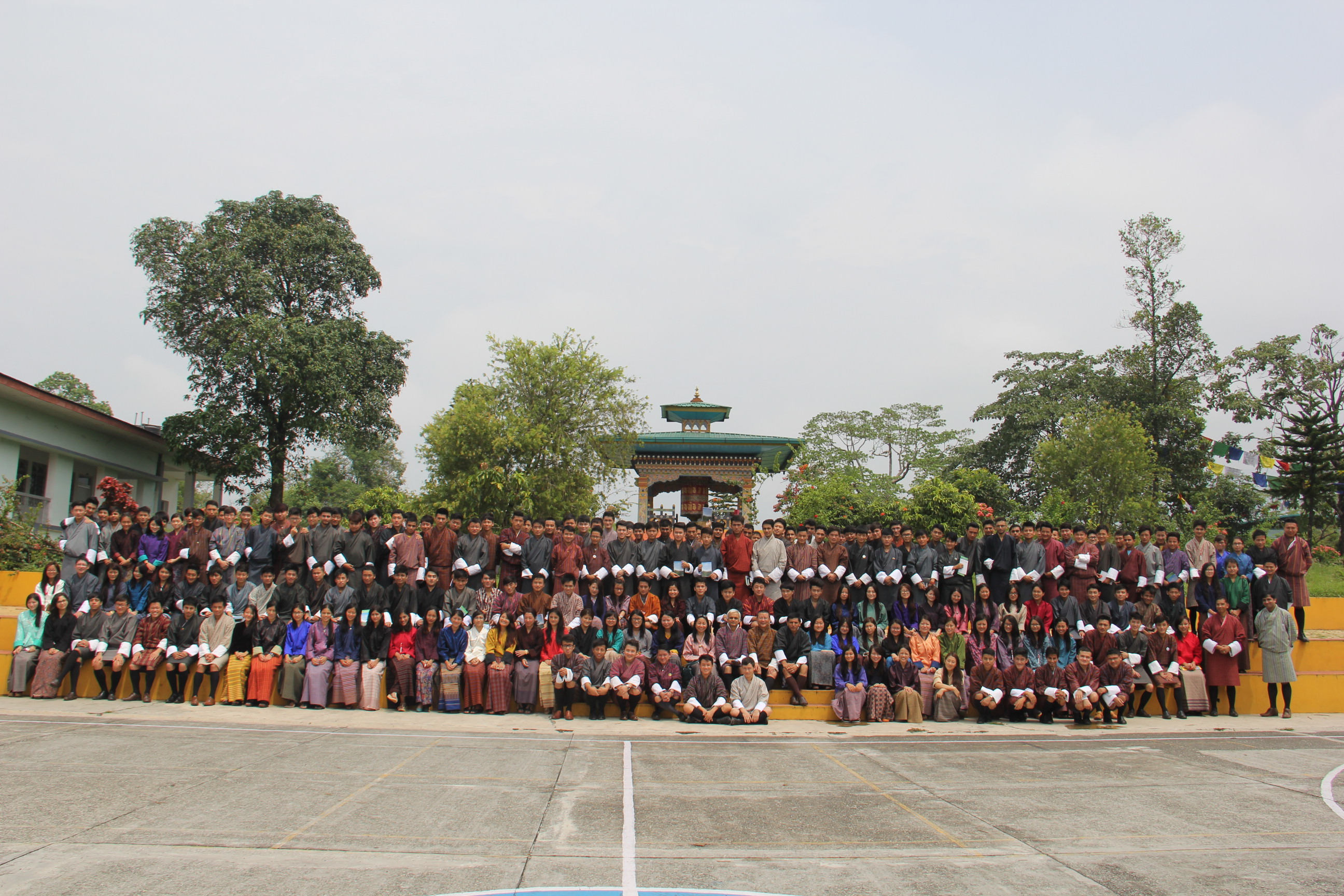Bhutan takes sensitization program on REDD+ Readiness program, soil, land and watershed management to the Academic Institutes (May 2-28, 2016)

The tiny Himalayan Kingdom [Bhutan] is characterized by the rugged terrain and farming on very steep slopes. The country today has about 72% forest cover. Forests in Bhutan plays an important role in safeguarding the stability of its geologically unstable terrain, sustaining the livelihood of > 65% of the population practicing subsistence farming and provision of other environmental goods and services. However, forest resources are put under immense threat from factors of anthropogenic, geophysical and natural origin.
In its quest to create awareness on the importance of sustainable management of the natural resources, the National Soil Services Centre (NSSC) under the Department of Agriculture and Watershed Management Division (WMD) of the Department of Forests and Park Services, Ministry of Agriculture and Forests (MoAF) conducted one-day sensitization workshop for youths in 6 colleges across Bhutan in May, 2016.
There were over 2000 student participants and faculty members of the colleges who participated during the event. It had the following objectives.
- Sensitize and raise awareness on sustainable soil, land and watershed management, and National Action
 Program (NAP) to combat land degradation,
Program (NAP) to combat land degradation, - Familiarize youths about the REDD+ Readiness Program of Bhutan,
- Advocate and empower youths in the said fields, and
- Discuss areas of cooperation and build institutional networks for collaborative activities.
The team also took an opportunity to educate youths on the REDD+ concept and its initiative at the global level, its relevance and linkages to the conservation efforts of Bhutan and REDD+ readiness initiative of the country based on the country’s plans and programs and to contribute to global effort of climate change mitigation, biodiversity conservation and prevention of land degradation.
The current trajectory of emerging problems and its impacts related to unsustainable use of soil, land and watershed management is not desirable. Therefore, taking “youths on board” to help address these problems jointly would be crucial since they are socially positioned between government and/or other institutions and the rural communities. Further, youth sensitization, advocacy and empowerment was felt crucial as they will be the ones, in one way or the other, to take care of our limited natural resources to ensure continuous flow of ecosystem services in the country and contribute to Bhutan’s efforts in its fight against poverty and global initiatives in combating climate change.
The program was supported by the REDD+ Readiness Program of Bhutan, WMD/DoFPS, which is funded by the Forest Carbon Partnership Facility/World Bank. It was coordinated by Phuntsho Gyeltshen, NSSC.

